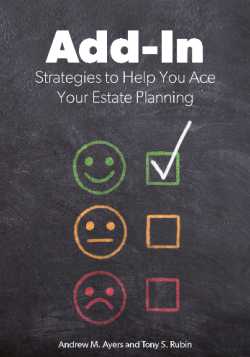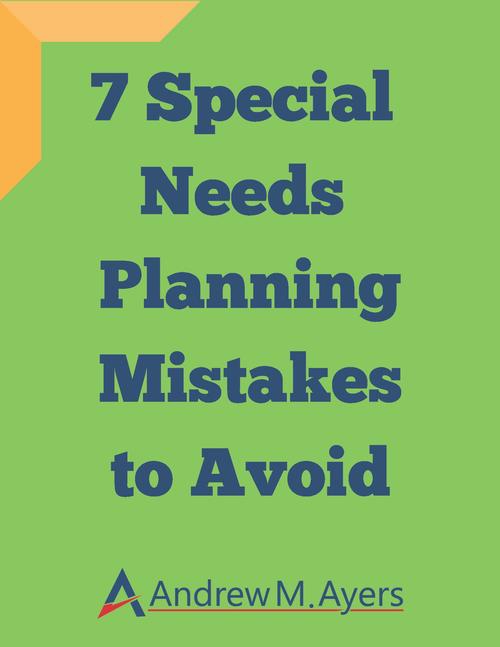 In the world of estate planning, there are two primary types of estate plans that we create. The first is a will-based estate plan, which is often a more simplified version of planning for your legacy. The second is a trust-based estate plan, which normally takes all of the documents that are in a will-based plan and adds a trust as well to the plan.
In the world of estate planning, there are two primary types of estate plans that we create. The first is a will-based estate plan, which is often a more simplified version of planning for your legacy. The second is a trust-based estate plan, which normally takes all of the documents that are in a will-based plan and adds a trust as well to the plan.
When you do some research online, you may end up wondering whether you need both a trust or a will? If your research takes you to a site that provides these services, you'll likely find that most of them will try to encourage you to create a trust-based estate plan (here's the secret: they get paid more money when you do a trust-based plan, so they're always going to find a way to get you to sign up for one of those plans).
But as you explore these options, you may wonder: Can you have a trust without a will?
The short answer is yes, you can. But before you decide to use that approach, it's important to understand the two documents and how they work with your estate plan.
Trusts v. Wills
Your Last Will and Testament (commonly called a "will") is a legal document that expresses a person’s wishes regarding the distribution of their property and the care of any minor children after death. It only takes effect after the testator (the person who made the will) passes away. It is subject to probate, a legal process where a court oversees the distribution of the estate to ensure it complies with the deceased's wishes.
Trusts, on the other hand, are legal arrangements where one party (the trustee) holds and manages property for the benefit of another (the beneficiary). Trusts can be established during a person’s lifetime (living trust) or after their death (testamentary trust). Unlike wills, trusts can take effect during the grantor's lifetime and are generally not subject to probate, allowing for a potentially smoother and more private transfer of assets.
Can You Have a Trust Without a Will?
The short answer is yes, you can have a trust without a will. In fact, some people choose to rely solely on a trust as part of their estate plan. However, there are significant considerations and potential pitfalls to be aware of when choosing this path.
The Benefits of a Trust-Only Estate Plan
- Avoidance of Probate: One of the primary reasons people create a trust is to avoid the probate process. Probate can be time-consuming, expensive, and public. By placing assets in a trust, those assets can typically be distributed to beneficiaries without the need for probate, providing a quicker and more private transfer.
- Control Over Asset Distribution: Trusts offer a high degree of flexibility and control over how and when your assets are distributed. For example, you can specify that beneficiaries receive assets at certain ages or under certain conditions, which is harder to enforce with a will alone.
- Continuity and Management: A living trust can provide for the management of your assets if you become incapacitated. The trustee can step in and manage the trust’s assets without the need for a court-appointed guardian or conservator, ensuring that your affairs are handled according to your wishes.
- Privacy: Unlike a will, which becomes a public document once it enters probate, a trust generally remains private. The details of your estate plan and the distribution of your assets can remain confidential, protecting the privacy of your beneficiaries.
The Risks and Limitations of a Trust-Only Estate Plan
While there are benefits to having a trust without a will, this approach is not without risks.
- Unaddressed Assets: One significant risk is that not all of your assets may be included in the trust. If you acquire new assets and fail to transfer them into the trust, they will not be covered by the trust’s terms. In the absence of a will, these assets may pass according to state intestacy laws, which may not align with your wishes.
- Intestate Succession: If you die without a will, any assets not included in your trust will be distributed according to your state’s intestacy laws. This could mean that your assets go to relatives you did not intend to benefit or that your estate is distributed in a manner contrary to your wishes.
- Guardianship for Minor Children: A trust does not appoint guardians for minor children. If you have minor children, it is essential to have a will to name a guardian. Without a will, the court will decide who will care for your children, which may not reflect your preferences.
- Complexity and Cost: Creating and maintaining a trust can be more complex and costly than simply drafting a will. Trusts require ongoing management, and if not properly maintained, they may not function as intended.
The Role of a "Pour-Over Will"
To mitigate the risks associated with a trust-only estate plan, many people choose to create a pour-over will in conjunction with their trust. A pour-over will is a type of will that ensures any assets not included in the trust at the time of your death are "poured over" into the trust. This provides a safety net to catch any assets that were not transferred into the trust during your lifetime, ensuring that your entire estate is managed according to the terms of the trust.
When a Trust-Only Plan Make Sense
A trust-only estate plan might be appropriate in certain situations:
- If you have a well-maintained and up-to-date trust: If you are diligent about transferring assets into your trust as they are acquired and if your estate is relatively straightforward, a trust-only plan may work for you.
- If privacy is a significant concern: If maintaining the privacy of your estate is a top priority, a trust-only plan, which avoids the public probate process, might be preferable.
- If you are certain your trust covers all contingencies: If your trust is comprehensive and addresses all potential issues, such as incapacity and the care of minor children through alternative arrangements, you might not need a will.
While it is possible to have a trust without a will, relying solely on a trust can leave your estate plan vulnerable to unforeseen issues. For most people, the best approach is to use a combination of both a trust and a will, particularly a pour-over will, to ensure that all assets are covered and that your wishes are fully carried out. This dual approach provides the flexibility, control, and privacy of a trust, while also addressing the potential gaps that a will can cover.
Need Help Choosing Between a Trust and a Will?
Choosing the correct documents for your estate plan is a vital first step, and if you need help with the process, let's schedule a Legal Strategy Session online or by calling my Edina, Minnesota office at (612) 294-6982 or my New York City office at (646) 847-3560. My office will be happy to find a convenient time for us to have a phone call to review the best options and next steps for you to work with an estate planning attorney.





